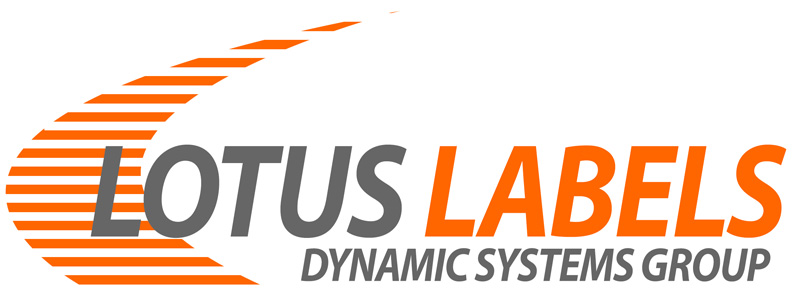How to Choose the Best Material for a Product Label with Sustainability in Mind
In today’s world, sustainability is not just a buzzword; it’s a way of life. Consumers are increasingly concerned about the
environmental impact of the products they purchase, and this extends to product labels as well. As businesses strive to become more eco-conscious, choosing the right materials for product labels is a critical step in reducing their environmental footprint. In this blog post, we’ll explore how to select the best material for a product label with sustainability in mind, with inspiration
from Lotus Labels.
Understanding Sustainability in Product Labelling
Sustainability in product labelling involves considering the environmental impact of the label materials, the original source of the label substrate, the manufacturing process, and the label’s entire lifecycle. Lotus Labels, a company known for its commitment to
eco-friendly labelling solutions can serve as a valuable guide in this endeavour.
When aiming for sustainability in product labelling, several crucial factors need to be considered:
1. Material Selection
Selecting the right label material is the foundation of creating a sustainable product label. Lotus Labels offers a variety of eco-friendly materials, including recycled papers, compostable materials, and sustainable films. These materials help reduce the overall
environmental impact of your labels.
Using recycled materials not only conserves natural resources but also requires less energy in the production process. Lotus
Labels’ materials are chosen for their quality and performance, ensuring your labels not only make a positive environmental impact but also effectively serve their purpose. On the flip side, selecting a recycled paper material over a recycled filmic substrate might let you select a recycled material with a reduced carbon dioxide output but in order to produce the paper, the manufacturing process will use lots of water, impacting the environment in other ways.
2. Adhesives
Choosing an adhesive that is strong enough to keep your label in place but also allows for clean removal during recycling or
disposal is essential. Lotus Labels understands the significance of this and offers adhesives with low environmental impact. These adhesives provide strong adhesion during product use and easy removal during recycling processes. For labels applied to glass bottles or jars at some UK recycling facilities during the recycling process the glass and label are passed through a hot or caustic
wash separating the label from the glass, the label and adhesive can then be skimmed from the top of the wash and where possible, recycled too. Lotus Labels is working with manufacturers who are making this technology a reality.
3. Printing Techniques
The choice of printing techniques plays a pivotal role in sustainability. Adopting efficient printing methods can reduce ink consumption and waste. Lotus Labels recommends embracing digital printing technologies, which generate less waste and use fewer resources compared to traditional printing methods. This approach not only minimizes the label’s environmental footprint but also offers more flexibility in label design. Lotus Labels’ digital Xeikon press utilises food-safe CMYK dry toner technology as opposed to solvent or water-based printing systems (inkjet or liquid toner). Unlike other digital technologies, Xeikon dry toner electrophotography can print on virtually any type of substrate without any pre-treatment **, yielding excellent results even on porous and structured paper stock. No solvents are used during the manufacturing of the toners, nor during printing. As a result, the dry toner contains no solvents, so our press produces no hazardous emissions of VOCs (volatile organic compounds) and no odour on the finished product.
** Dry toner technology is less impactful than other printing technologies such as Inkjet as they require materials which have been pre-treated to allow the Ink to sufficiently adhere to the substrate.
4. Durability and Label Longevity
A sustainable label should be durable, ensuring it remains intact and legible for the entire product lifecycle. Labels that peel
or fade prematurely can result in re-labelling or miscommunication, which contributes unnecessary waste to the environment. Lotus Labels’ materials are designed to withstand various environmental conditions, ensuring your labels last as long as your products are in use. With specific requirements for your labels’ initial destination and usage Lotus Labels’ team of specialists can
help and identify the best materials for the label’s ultimate use and to help with the plan for the labels’ end-of-life plan back through the circular economy whilst we all aim for zero waste.
5. Compliance with Regulations
Regulations related to product labelling are continually evolving, with a growing focus on sustainability. Lotus Labels stays informed about these regulations and ensures that their products comply with the latest sustainability standards. Labelling and packaging is a small part of your ultimate final product, historically the packaging and label was just a means of protecting the product before use or consumption, now with new Extended Producer Responsibility regulations it is a key part of the whole product, and as producer/manufacturer you are responsible for all your products’ elements from production to eventual disposal or reuse. By choosing Lotus Labels as your label producer and guide, you can be confident that your labels are developed with you to meet regulatory requirements.
6. Recyclability
Consider the end-of-life options for your product labels. Labels that can be easily removed and do not contaminate the recycling
stream are highly sustainable. Identifying and creating labels that can be recycled with the container they reside on is always at the forefront of good labelling project.
Lotus Labels’ selected materials are chosen with recyclability in mind, helping businesses contribute to a more circular economy
and in many cases win over their faithful customers as they too will be focusing no how they can choose more sustainable products.
7. Collaboration and Expertise
Lotus Labels offers valuable support and expertise in creating sustainable labels. Collaborating with their team from the initial
stages of a product development or packaging project can help businesses make informed decisions regarding label materials, adhesives, and printing methods. They can also provide guidance on label design and regulatory compliance.
In conclusion. Aiming for total sustainability
Selecting the best material for a product label with sustainability in mind is a comprehensive process. Lotus Labels’ commitment to sustainability and the wide range of eco-friendly label materials provide an ideal guide for businesses seeking to reduce their
environmental impact. By focusing on material selection, adhesives, printing techniques, durability, compliance, recyclability, and collaborating with experts, businesses can create product labels that not only inform consumers but also align with their environmental values.
As consumer demand for sustainability continues to grow, making eco-friendly choices in product labelling is not only responsible
but also a smart business decision. Lotus Labels’ 40+ years’ expertise and products can help your business lead the way in sustainable labelling practices, showing your customers that you care about both the quality of your products and the well-being of the planet.

